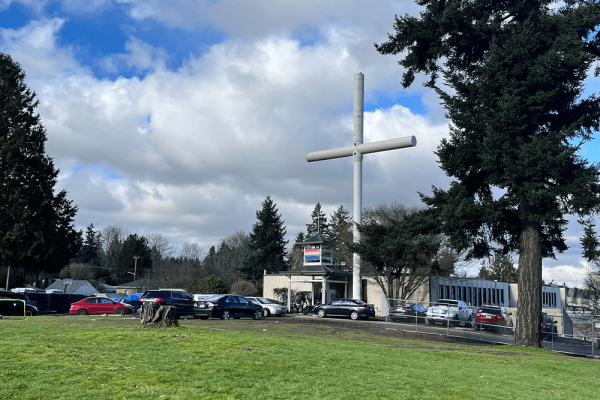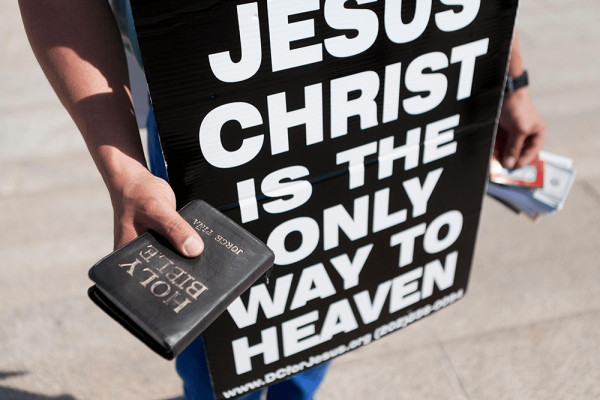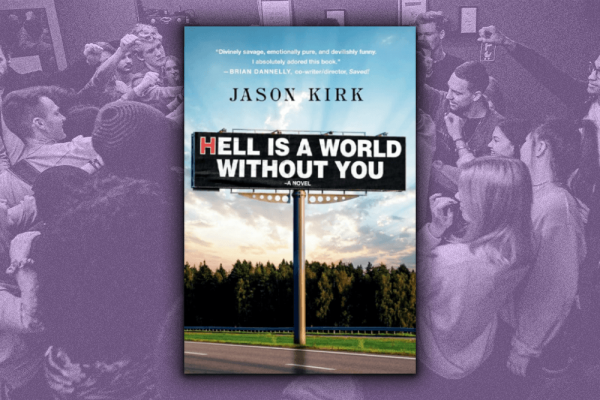New data finds that almost two-thirds of LGBTQ+ people who were raised Christian have since left the faith — and those who stay are typically older, Black, cisgender men and those who live in the South.
For more than a year, Riverton Park United Methodist Church in Tukwila, Wash., has been a cramped, uncomfortable shelter for hundreds of refugees. Neither designed nor intended to be a camp for those navigating the complicated immigration and asylum process, the ongoing situation has become a crisis, with the city declaring a state of emergency last October. Still, as Riverton Park remains unwilling to turn people away, the church and its neighbors, community organizers, and local government are all seeking solutions to the crisis.
Greece’s parliament approved a bill allowing same-sex civil marriage on Thursday, a landmark victory for supporters of LGBTQ+ rights that was greeted with cheers by onlookers in parliament and dozens gathered on the streets of Athens.
“Eating is an inherently good activity,” writes Elizabeth Palmberg in the 2009 issue of Sojourners, “a channel of God’s goodness.” Eating is also an essential way for us to experience fellowship, build relationships, and share love. Yet eating can also be, as the Apostle Paul writes, an extension of our faithfulness: “So whether you eat or drink or whatever you do, do it all for the glory of God” (I Corinthians 10:31). And when I think about my diet, it’s hard to imagine how the overconsumption of meat — which so often exacerbates health problems and disproportionately contributes to climate change — can be to the “glory of God.”
The new documentary God & Country, inspired by Katherine Stewart’s book The Power Worshippers, fortunately escapes most of the major pitfalls of political documentaries as it addresses the rise of Christian nationalism.
Was Robert E. Lee, the infamous confederate general who went to war to defend slaveocracy in the South, a Christian? The answer to this question may seem obvious: Yes. Lee was an Episcopalian who was called a “humble, earnest Christian” by a minister who was his contemporary. But some Christians may recoil at the idea that someone they see as clearly at odds with Jesus’ call to “release the captives,” would be considered a Christian.
I don’t think I’ve ever read a book quite like Jason Kirk’s Hell Is a World Without You. This book, a bildungsroman about a teen’s evangelical house of cards and the mounting life experiences, new friends, and cold fingers of doubt that threaten to knock it over, is a call coming from firmly inside the house.
The greatest single line in cinema of the past 12 months was delivered inside of a Barbie Dreamhouse.
Every morning, I drive my two sons, ages 11 and 13, to school. Normally these rides are mostly quiet as I listen to podcasts, and they watch something on their iPads. But this February, I told my sons we were starting a new tradition: Taking turns naming a figure of Black history and sharing why we believe that person was significant. To my surprise, my sons’ initial reticence quickly turned to enthusiasm. So far, we’ve talked about Louis Armstrong, Jesse Owens, Sojourner Truth, Thurgood Marshall, Rosa Parks, and Carter G. Woodson — the leader of the Association for the Study of Negro Life and History who established the second week of February to be “Negro History Week” to counterbalance the ongoing erasure of Black contributions in the U.S.
In a country where religious leaders openly condemn homosexuality and gay sex is punishable with jail time, Ghanaian couple Kay and Naa Shika fear more for their lives and safety than whether a church will bless their same-sex union.









